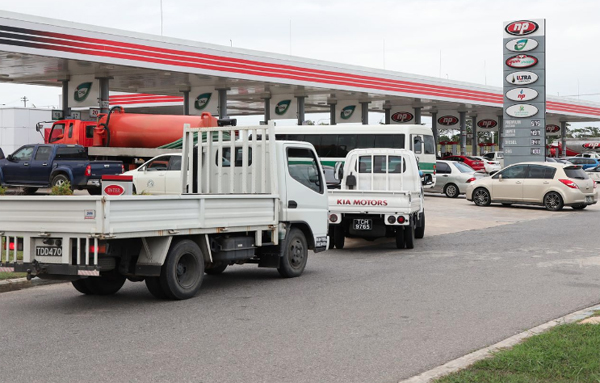
T&T Guardian
PORT SPAIN
EnergiesNet.com 03 31 2023
Former Minister of Energy, Kevin Ramnarine, says T&T is approaching the point when the Government will be able to implement the full liberalisation of T&T’s fuel sector.
Ramnarine was responding to comments by Minister of Finance, Colm Imbert, at a news conference on Monday, that the volatility in the global prices of crude oil, which is used to produce transportation fuels, is holding back the Government’s move towards the full liberalisation of the fuel market.
Asked at Monday’s news conference if the country would benefit from a full liberalisation of fuel prices at this time, Imbert said: “Oil prices are so volatile that one has to look at them for a suitable period of time because you could be at US$100 a barrel today and next week at US$75 a barrel.
“So, we are monitoring the price of oil to see how it affects the fuel subsidy and we will make an appropriate decision at the appropriate time. You can’t just jump because you see oil at US$75 a barrel because two months ago it was US$95 a barrel.
“One has to be careful. One can’t make a knee-jerk reaction.”
Asked for his views on whether the local prices of fuels should decline, given the fact that the crude oil benchmark, West Texas Intermediate, is now trading below US$75 a barrel, Ramnarine noted the Government’s stated intention is that it would cap the fuel subsidy liability at $1 billion per annum.
“If it is projected that the subsidy liability will come in at under $1 billion, then the prices at the pump should be lowered in proportion.
“I suspect that at current oil prices there is a small surplus being collected on super gasoline, but there is still a subsidy on diesel and that overall we are still carrying a subsidy liability.
“My recommendation is the implementation of a floating pricing mechanism that would see prices at the pump adjusted monthly,” said Ramnarine.
Asked if he was recommending the immediate liberalisation of T&T’s fuel market, Ramnarine said: “We are not far away from full liberalisation given that the prices at the pump are at or near market prices.
“There should be a well-thought-out plan to move to full liberalisation. The retail side of the fuel supply chain needs to be modernised, and liberalisation would facilitate that. We have to consider too whether service stations as we currently know them will exist in 20 years.”
Ramnarine served as one of the two ministers of energy during the 2010 to 2015 administration led by Kamla Persad Bissessar.
In a speech at the May 31, 2022, Trinidad and Tobago Energy Conference, Prime Minister Keith Rowley said the Government’s promotion of electric vehicles is a transformational change that “represents a major shift in our transportation policy and presents an opportunity for the Government to reduce or eliminate the fuel subsidy.
“In so doing, Government can alleviate the potential shocks in further subsidy reform.
“Over the last ten years, the subsidy paid amounted to $23 billion and with the current high oil prices, the subsidy for fiscal 2022 to date has averaged $142 million per month.
“As a consequence Government decided to increase fuel prices to mitigate the financial impact of the subsidy on the Treasury and to better utilize the improved revenue in financing social and capital expenditure and reducing debt.
“It is instructive to note that the subsidy on premium gasoline was reduced by 52 per cent, super gasoline was reduced by 38 per cent, kerosene was reduced by 31 per cent and diesel was reduced by 11 per cent. There was no increase in the price of LPG. “
At a news conference on July 18, 2022, the prime minister announced that the Government was considering capping the subsidy on fuels at $1 billion.
In delivering the 2023 budget on September 26, 2022, Finance Minister said: “The ex-refinery price for fuel is directly proportional to the market price of oil and is derived from the cost of purchasing crude oil at world market prices plus the cost of processing this oil into fuel. To this price must be added the cost of shipping, handling, storage, marketing, transport, and distribution to get the retail price of fuel at gas stations.
“I am advised by the Ministry of Energy and Energy Industries that at US$95 per barrel for oil, the unsubsidised prices of premium and super gasoline and diesel per litre, before any mark-up, are as follows:
• Premium gasoline: $7.66
• Super gasoline: $7.59
• Diesel: $7.75
“It should be noted that in this scenario the true price of diesel is currently subsidised by almost 100 per cent.
“In other words, when oil is US$95 a barrel, the price at which diesel is sold to consumers in T&T, at $3.91 per litre is almost half the actual cost that the Government pays to purchase and supply this fuel.”
guardian.co.tt 03 30 2023












